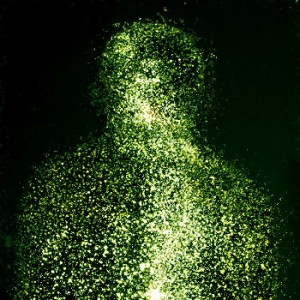 The distinction between field and form provides the essential foundation of the new science and indeed the whole of P-A. Form can be called an illusion because it is ephemeral and without “absolute” existence. All form emerges from the field of energy that contains infinite possibilities of undifferentiated matter. “The physical character of atoms, proteins, cells, and people are controlled by immaterial energies that collectively form that field.” This statement expresses a cosmology that can be found in the Hindu worldview of 5,000 years ago. The field has also been called the Implicate Order or in Sanskrit, the Akashic or “radiant” space.
The distinction between field and form provides the essential foundation of the new science and indeed the whole of P-A. Form can be called an illusion because it is ephemeral and without “absolute” existence. All form emerges from the field of energy that contains infinite possibilities of undifferentiated matter. “The physical character of atoms, proteins, cells, and people are controlled by immaterial energies that collectively form that field.” This statement expresses a cosmology that can be found in the Hindu worldview of 5,000 years ago. The field has also been called the Implicate Order or in Sanskrit, the Akashic or “radiant” space.
If we are to create a sustainable community, humanity must realize that unconsciousness—the basis for our self-destructive behavior—can only be transcended by the realization that all form is interrelated, interdependent, and impermanent. The false self is an illusion as are all the objects of craving and aversion related to the seeking of material security, pleasure and power. Our tendency to identify with our afflictive emotions, our thoughts, and our bodily sensations inevitably leads to an unsatisfactory existence. Redefining the disciplines of science is part of the process of creating a more viable worldview—a sustainable and satisfactory experience of life.
BASIC GLOSSARY:
Reductionism—the process of taking matter apart and studying its bits and pieces.
Determinism—the belief that with knowledge of something’s parts, we can predict its behavior.
Noetic science—based upon holism, the belief that an understanding of nature and the human experience requires that we transcend the parts to see the whole.
Materialism and reductionism engender the idea that humans are disconnected from, and above, nature.
___________________________________________________________
References and notes are available for this essay.
Find a much more in-depth discussion in the Simple Reality Trilogy
by Roy Charles Henry:
Where Am I? Story – The First Great Question
Who Am I? Identity – The Second Great Question
Why Am I Here? Behavior – The Third Great Question


